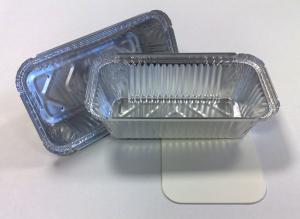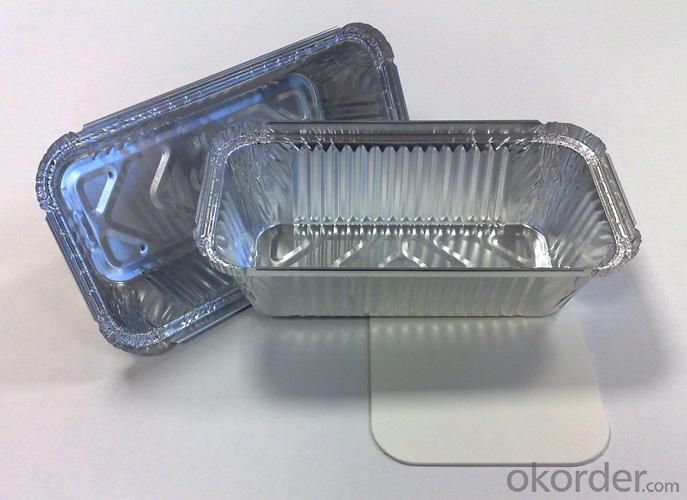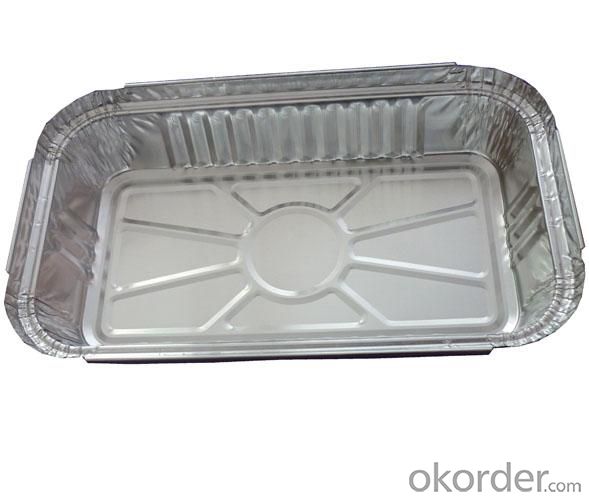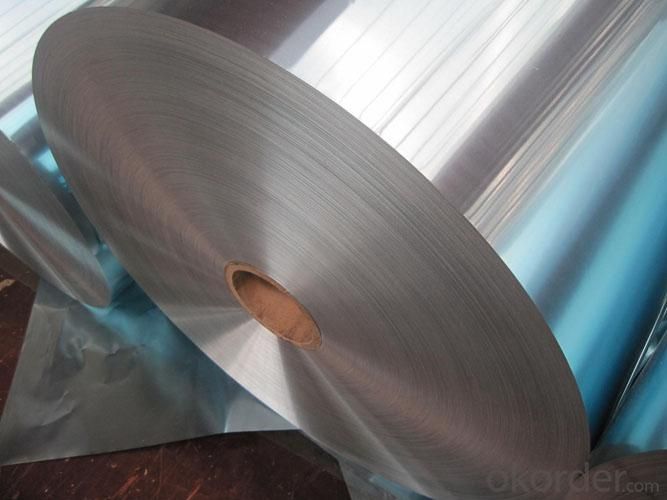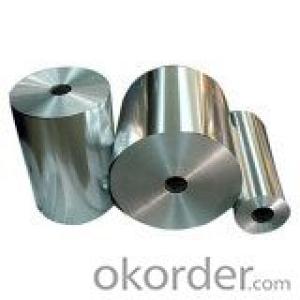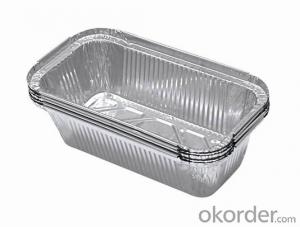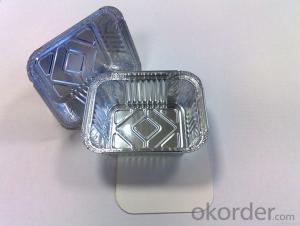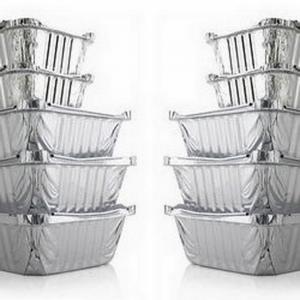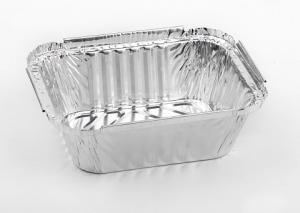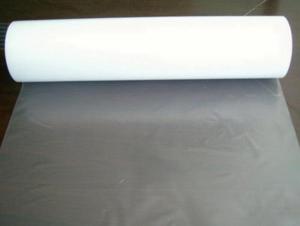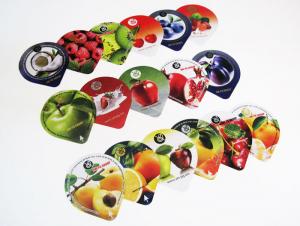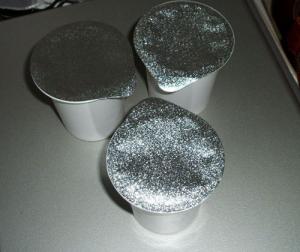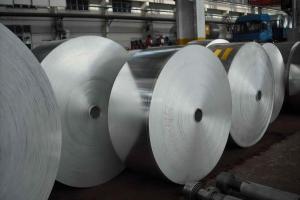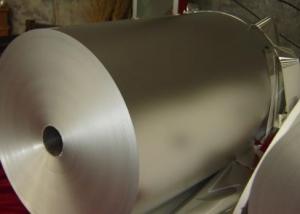Aluminum Food Container Aluminum Foil
- Loading Port:
- China Main Port
- Payment Terms:
- TT or LC
- Min Order Qty:
- 3Tons m.t.
- Supply Capability:
- 3000Tons Per Month m.t./month
OKorder Service Pledge
OKorder Financial Service
You Might Also Like
Quick details of Aluminum Foil For Food Container
|
Application: |
For different food container, such as dishes, plates, trays, etc |
|
Alloy: |
8011 /3003 |
|
Temper: |
O/H22/H24 |
|
Thickness & Tolerance: |
0.05mm-0.20mm (±8%) |
|
Width & Tolerance: |
200mm-1650mm(±1mm) |
|
Mechanical Properties: |
Tensile Strength(U.T.S)≥49Mpa, Elongation≥1% |
|
Standard: |
GB/T3198 / ASTM-B209 / EN546 |
Usage/Application of Aluminum Foil For Food Container
Used for different food container, such as dishes, plates, trays, etc
Packaging & Delivery of Aluminum Foil For Food Container
Packing: seaworthy wooden box with pallet
Delivery: to be loaded by 1 x 20 feet container
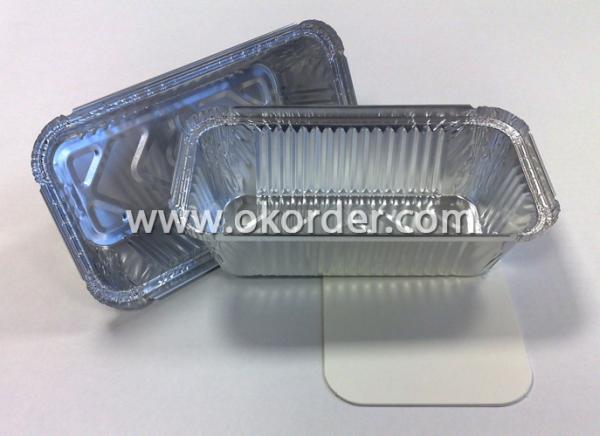
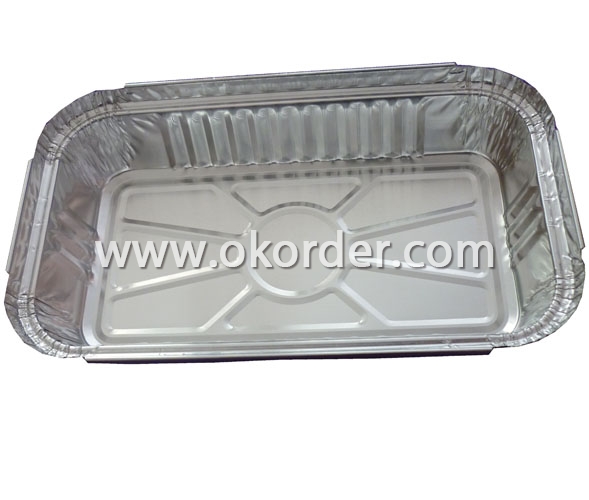
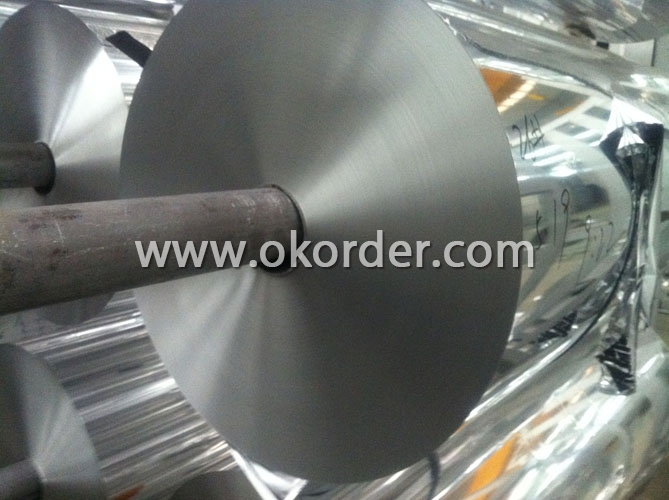
- Q: This question asks for a comparison between aluminum and other metals, highlighting their distinct properties and characteristics.
- <p>Aluminum is a lightweight, corrosion-resistant metal with a low density, making it ideal for applications requiring strength without excessive weight. It is also a good conductor of heat and electricity. Unlike other metals like iron or copper, aluminum is not magnetic and has a lower melting point. It is also more abundant and cheaper to produce than many other metals, which makes it widely used in industries such as construction, transportation, and packaging. Aluminum's reactivity means it forms a protective oxide layer when exposed to air, which prevents further corrosion. In contrast, metals like stainless steel offer greater strength and resistance to corrosion, while copper has superior electrical conductivity. Each metal has its unique properties that make it suitable for specific applications.</p>
- Q: This question asks about the chemical reaction between aluminum and elements in the halogen group.
- <p>Aluminum reacts with halogens to form aluminum halides. The reaction is typically exothermic and can be represented by the general equation: 2Al + 3X2 鈫?2AlX3, where X represents a halogen (fluorine, chlorine, bromine, iodine, or astatine). For example, when aluminum reacts with chlorine, it forms aluminum chloride (AlCl3). The reaction is often initiated by heating the aluminum, which is then rapidly oxidized by the halogen. This process is used industrially to produce aluminum halides, which are important in various chemical applications.</p>
- Q: Explain how the incorporation of titanium into aluminum alloys influences their properties and strength.
- <p>Adding titanium to aluminum alloys significantly enhances their mechanical properties and strength. Titanium increases the alloy's strength, hardness, and resistance to corrosion. It also improves the alloy's creep resistance, which is crucial for high-temperature applications. The addition of titanium refines the grain structure, leading to better ductility and toughness. Moreover, titanium helps to reduce the likelihood of stress-corrosion cracking, making the alloy more reliable in aggressive environments. Overall, titanium-aluminum alloys are stronger, more durable, and have a wider range of applications than pure aluminum or simple aluminum alloys.</p>
- Q: This question asks about the impact of aluminum on human health, including potential effects and health concerns.
- <p>Aluminum is a common element that can be found in various forms in the environment. While it is not considered an essential nutrient for the human body, it can be ingested through food, water, and medications. In small amounts, aluminum is generally considered safe and is excreted by the body. However, excessive exposure or intake can lead to potential health concerns. Aluminum has been linked to neurological disorders, particularly Alzheimer's disease, although the exact relationship is still a subject of debate. It can also cause bone disorders and affect kidney function. The human body has mechanisms to regulate aluminum levels, but individuals with impaired kidney function may be at a higher risk of aluminum toxicity.</p>
- Q: What is the chemical formula that represents aluminum?
- <p>The chemical formula for aluminum is Al. It is a lightweight, silvery-white metal that is found in the Earth's crust and is the most abundant metal there. Aluminum is a member of the boron group of chemical elements and is represented by the symbol Al, which is derived from the Latin word 'alumen', meaning alum.</p>
- Q: Is it possible to recycle aluminum at home?
- <p>Yes, aluminum can be recycled at home. It's easy to recycle as it's a lightweight, durable, and infinitely recyclable material. Simply clean and flatten aluminum cans, foil, and other aluminum products before placing them in your recycling bin. However, not all home recycling programs accept all types of aluminum, so check with your local recycling center for specific guidelines.</p>
- Q: This question asks for examples of how recycled aluminum can be utilized.
- <p>Recycled aluminum has numerous applications, including the manufacturing of beverage cans, automotive parts, construction materials, and electronic components. It is also used in the production of aluminum foil, packaging materials, and various household items. Recycled aluminum is valued for its durability, lightweight properties, and energy efficiency in production, making it an environmentally friendly choice for many industries.</p>
- Q: Explain the question in English and provide a brief description of how to lessen the use of aluminum in food packaging.
- <p>To reduce the amount of aluminum in food packaging materials, consider using alternative packaging options such as biodegradable materials like paper, cardboard, or plant-based materials. Encourage the use of glass containers, which are reusable and have a lower environmental impact. Advocate for the development and use of aluminum-free coatings and films. Promote recycling programs specifically for aluminum to ensure it is properly collected and repurposed. Additionally, educate consumers on the importance of reducing aluminum use and the benefits of alternative packaging options.</p>
- Q: This question asks for a comparison of the positive and negative aspects of using aluminum as a material.
- <p>Aluminum has several advantages, including its lightweight nature, making it ideal for transportation and construction. It is also highly recyclable, with the recycling process requiring less energy compared to many other materials. Additionally, aluminum is corrosion-resistant, which extends the lifespan of products. On the downside, aluminum is less strong than some other metals, which can limit its use in certain applications. It also has a high thermal conductivity, which can be a disadvantage in situations where insulation is needed. Moreover, aluminum production is energy-intensive, contributing to environmental concerns.</p>
- Q: Describe the steps involved in the production of aluminum sheets.
- <p>The production process of aluminum sheets involves several key steps. Initially, raw materials, primarily bauxite, are mined and then refined to produce aluminum oxide. This aluminum oxide is then reduced to aluminum metal through the Hall-H茅roult process, where it is dissolved in molten cryolite and electrolyzed. Once the aluminum is produced, it is heated and cast into large ingots. These ingots are then hot or cold rolled into sheets, which are progressively reduced in thickness. The sheets may undergo further processing such as annealing to improve ductility or coating for specific applications. Quality control checks are performed throughout the process to ensure the sheets meet the required specifications. The final product is then cut to size and packaged for distribution to various industries.</p>
Send your message to us
Aluminum Food Container Aluminum Foil
- Loading Port:
- China Main Port
- Payment Terms:
- TT or LC
- Min Order Qty:
- 3Tons m.t.
- Supply Capability:
- 3000Tons Per Month m.t./month
OKorder Service Pledge
OKorder Financial Service
Similar products
Hot products
Hot Searches
Related keywords
